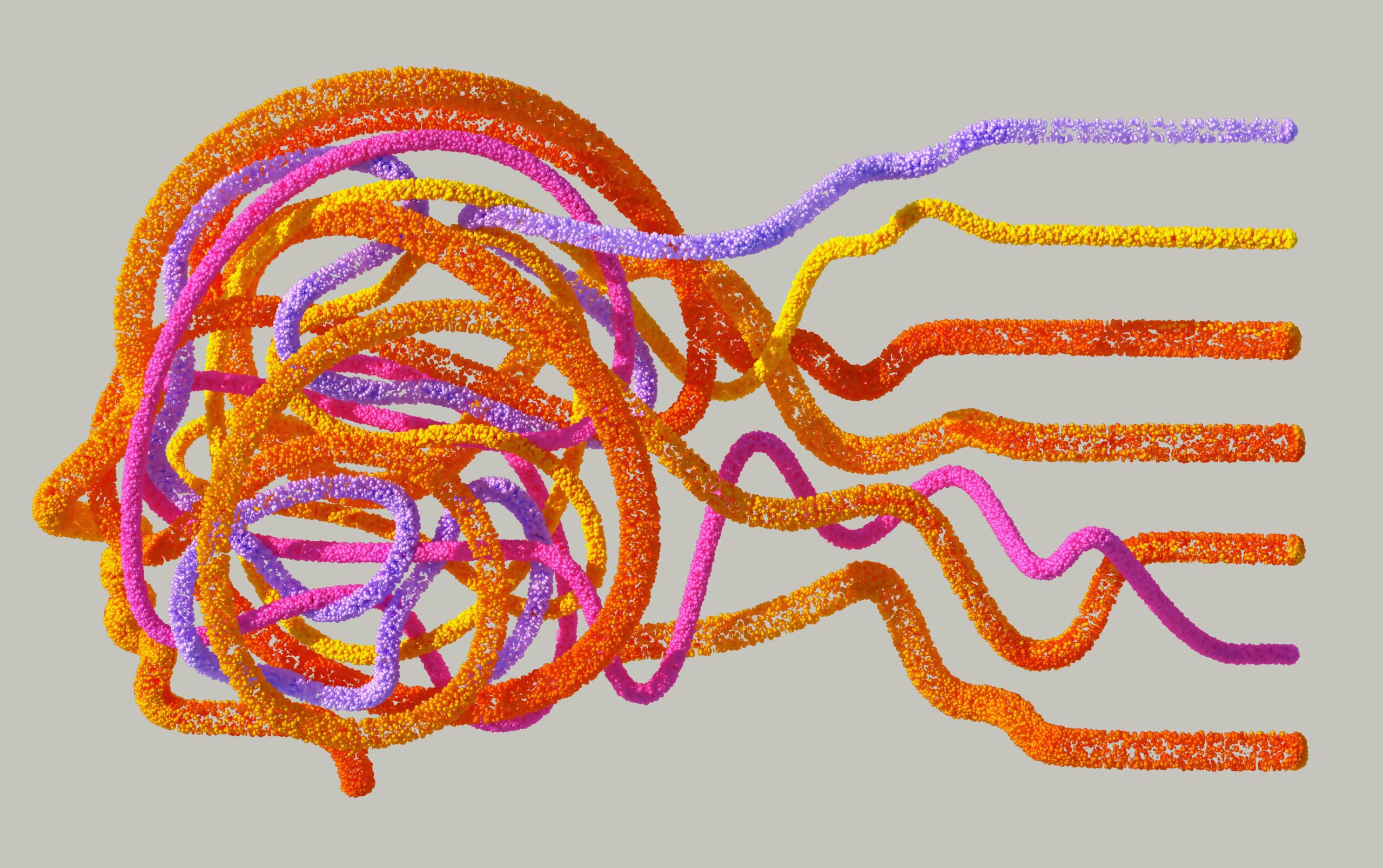The intersection of artificial intelligence and mental health care is creating unprecedented opportunities for personalized treatment approaches. Traditional therapy methods are being enhanced by sophisticated algorithms that adapt to individual patient needs in real-time.
Mental health challenges affect millions worldwide, yet access to quality care remains limited. The emergence of AI-driven platforms promises to democratize mental health support while offering levels of customization previously impossible with conventional therapeutic approaches. This technological revolution isn’t replacing human therapists but augmenting their capabilities with data-driven insights and continuous patient monitoring.
🧠 The Current State of Mental Health Care Challenges
Mental health care systems globally face significant obstacles that prevent optimal patient outcomes. Long waiting lists, shortage of qualified professionals, and one-size-fits-all treatment protocols create barriers to effective care. Traditional therapy sessions occur weekly or bi-weekly, leaving substantial gaps where patients manage symptoms independently without professional guidance.
Geographic limitations compound these issues, particularly in rural areas where mental health specialists are scarce. Economic factors further restrict access, as therapy costs remain prohibitive for many individuals requiring support. The stigma surrounding mental health also prevents countless people from seeking help until conditions become severe.
Standard treatment approaches often rely on trial-and-error medication adjustments and periodic therapy sessions. This reactive model means clinicians may only discover treatment ineffectiveness weeks or months after implementation, delaying patient recovery and potentially worsening outcomes.
Understanding AI-Driven Personalization in Therapy 🎯
Artificial intelligence brings transformative capabilities to mental health care through sophisticated pattern recognition and predictive analytics. Machine learning algorithms analyze vast datasets of patient information, treatment responses, and clinical outcomes to identify personalized intervention strategies that align with individual patient profiles.
AI systems process multiple data streams simultaneously, including demographic information, medical history, genetic markers, lifestyle factors, and real-time behavioral patterns. This comprehensive analysis enables identification of subtle correlations that human clinicians might overlook, leading to more precise diagnosis and treatment recommendations.
Personalization extends beyond initial assessment to continuous treatment optimization. As patients engage with therapeutic interventions, AI systems monitor response patterns and adjust recommendations dynamically. This adaptive approach ensures therapy remains aligned with evolving patient needs rather than following rigid predetermined protocols.
Machine Learning Models in Mental Health Assessment
Natural language processing algorithms analyze patient communications—whether written journal entries, therapy session transcripts, or digital conversations—to detect linguistic patterns associated with specific mental health conditions. Sentiment analysis reveals emotional states, while semantic analysis identifies cognitive patterns like rumination or catastrophizing.
Predictive models trained on extensive clinical datasets can forecast treatment responses based on patient characteristics. These algorithms consider factors including symptom severity, comorbid conditions, previous treatment history, and social determinants of health to recommend interventions with highest probability of success.
Computer vision technologies analyze facial expressions, body language, and other visual cues during video sessions to assess emotional states objectively. These systems complement self-reported symptoms with objective measurements, providing clinicians with richer assessment data.
Real-Time Monitoring Technologies Transforming Care Delivery 📱
Continuous monitoring capabilities represent perhaps the most significant advancement AI brings to mental health care. Wearable devices, smartphone sensors, and digital platforms collect physiological and behavioral data throughout patients’ daily lives, creating comprehensive pictures of mental health status beyond clinical settings.
Wearable technology tracks physiological markers including heart rate variability, sleep patterns, physical activity levels, and stress indicators. These biological signals correlate with mental health states, enabling early detection of symptom exacerbations before patients consciously recognize deterioration.
Smartphone usage patterns provide behavioral insights with remarkable accuracy. Screen time, app usage, typing speed, communication frequency, and location data collectively reveal changes in mood, social engagement, and daily functioning. AI algorithms detect deviations from baseline patterns that may signal emerging mental health concerns.
Ecological Momentary Assessment Enhanced by AI
Ecological momentary assessment involves capturing data about patients’ experiences, behaviors, and symptoms in real-world contexts as they occur. AI-enhanced systems deliver brief surveys or prompts at strategic moments determined by contextual factors and individual patterns rather than fixed schedules.
This approach reduces recall bias inherent in traditional retrospective reporting while capturing symptom variability across different situations and times. Machine learning algorithms identify optimal assessment timing to maximize response rates while minimizing patient burden.
Data collected through these assessments feeds back into personalization algorithms, creating continuous improvement cycles. Treatment recommendations evolve based on real-world effectiveness rather than controlled clinical trial results, making interventions more practical and contextually relevant.
Integration of AI With Evidence-Based Therapeutic Approaches 🔬
AI platforms incorporate established therapeutic modalities including cognitive behavioral therapy, dialectical behavior therapy, acceptance and commitment therapy, and mindfulness-based interventions. Digital delivery systems make these evidence-based approaches accessible anytime, anywhere, while maintaining treatment fidelity through structured protocols.
Cognitive behavioral therapy translates particularly well to digital formats, with AI systems guiding patients through thought records, behavioral experiments, and skills practice. Algorithms identify cognitive distortions in patient inputs and deliver targeted interventions addressing specific thinking patterns.
Personalization occurs through adaptive intervention selection, where AI determines which therapeutic techniques best match patient preferences, learning styles, and symptom profiles. Some patients respond better to behavioral activation while others benefit more from cognitive restructuring—AI identifies these preferences through engagement patterns and outcome tracking.
Virtual Therapeutic Companions and Chatbots
AI-powered conversational agents provide immediate support between human therapy sessions, offering coping strategies, crisis intervention, and therapeutic exercises on-demand. These virtual companions use natural language understanding to engage patients in meaningful therapeutic dialogues that feel personal and responsive.
Advanced chatbots don’t simply provide scripted responses but engage in contextual conversations that adapt to patient emotional states and immediate needs. They recognize crisis situations and escalate to human clinicians when appropriate, serving as both therapeutic tools and safety monitoring systems.
The non-judgmental nature of AI interactions encourages some patients to disclose information they might withhold from human therapists due to shame or fear of judgment. This candor enables more accurate assessment and targeted intervention recommendations.
Data Privacy and Ethical Considerations in AI Mental Health Tools 🔒
The extensive data collection required for AI-driven personalization raises significant privacy concerns. Mental health information ranks among the most sensitive personal data, and breaches could have devastating consequences for patients. Robust security protocols, encryption standards, and strict access controls are essential for maintaining patient trust and confidentiality.
Regulatory frameworks struggle to keep pace with technological advancement, creating ambiguity around data ownership, consent requirements, and appropriate use cases. Patients must understand what data is collected, how algorithms use it, and who can access their information before engaging with AI mental health platforms.
Algorithmic bias represents another critical ethical concern. Machine learning models trained on non-representative datasets may perpetuate or amplify existing healthcare disparities. If training data predominantly includes specific demographic groups, algorithms may perform poorly for underrepresented populations, potentially widening treatment gaps rather than closing them.
Transparency and Explainability in AI Decision-Making
Black box algorithms that generate recommendations without explaining reasoning undermine clinical decision-making and patient autonomy. Explainable AI approaches prioritize transparency, showing clinicians and patients why specific interventions were recommended based on which factors.
This transparency enables clinicians to exercise professional judgment rather than blindly following algorithmic recommendations. When AI suggestions align with clinical expertise, they reinforce confidence; when discrepancies arise, transparent reasoning facilitates productive dialogue about optimal treatment directions.
Patients benefit from understanding personalization logic as well. When recommendations connect clearly to their specific symptoms, preferences, and progress, engagement and adherence improve significantly compared to opaque systems that feel arbitrary or impersonal.
Clinical Evidence and Effectiveness Research 📊
Growing research evidence supports AI-driven mental health interventions’ effectiveness across various conditions and populations. Randomized controlled trials demonstrate that digital cognitive behavioral therapy produces outcomes comparable to traditional face-to-face therapy for mild to moderate depression and anxiety disorders.
Studies examining AI-enhanced personalization show improved outcomes compared to standard digital interventions. When algorithms match patients with optimal intervention components based on their profiles, symptom reduction occurs faster and dropout rates decrease significantly.
Real-time monitoring capabilities enable earlier intervention during symptom exacerbations, potentially preventing relapses and hospitalizations. Research indicates that patients using monitoring apps with predictive alerts experience fewer crisis episodes and report greater sense of control over their mental health.
Comparative Effectiveness Across Different Populations
Evidence suggests AI mental health tools demonstrate particular promise for populations traditionally underserved by conventional care systems. Young adults comfortable with digital technology show high engagement rates and positive outcomes with app-based interventions.
Rural populations lacking local mental health resources benefit substantially from AI-driven platforms that provide evidence-based treatment without geographic constraints. These tools democratize access while maintaining quality standards through algorithm-driven treatment fidelity.
Cultural adaptation represents an evolving area where AI shows potential. Algorithms can personalize intervention content based on cultural backgrounds, incorporating relevant values, communication styles, and help-seeking preferences that improve engagement among diverse populations.
Integration With Traditional Clinical Practice 🤝
The most effective implementation model positions AI as augmentation rather than replacement of human clinicians. Hybrid care approaches combine periodic therapist sessions with continuous AI-supported monitoring and intervention, leveraging strengths of both human expertise and technological capabilities.
Clinicians receive dashboard summaries of patient data collected between sessions, including symptom trends, treatment adherence, and algorithm-generated insights. This information enables more productive therapy time focused on complex issues rather than status updates, essentially extending therapeutic reach beyond session constraints.
AI handles routine tasks like symptom tracking, homework reminders, and psychoeducation delivery, freeing clinicians to focus on therapeutic relationship building and complex clinical decision-making that requires human judgment, empathy, and creativity.
Training Healthcare Professionals for AI-Enhanced Practice
Successful integration requires training clinicians to interpret AI-generated insights, integrate algorithmic recommendations with clinical expertise, and communicate effectively with patients about technology-augmented care. Many mental health professionals lack technical backgrounds, necessitating accessible education focused on practical application rather than algorithmic mechanics.
Training programs must address both technical competencies and conceptual understanding of AI capabilities and limitations. Clinicians need realistic expectations about what algorithms can and cannot do, avoiding both uncritical acceptance and dismissive skepticism.
Professional organizations are developing competency standards and ethical guidelines for AI-augmented practice, establishing frameworks that ensure responsible implementation while encouraging innovation.
Future Directions and Emerging Technologies 🚀
Artificial intelligence capabilities continue advancing rapidly, promising even more sophisticated mental health applications. Multimodal AI systems that integrate diverse data streams—physiological sensors, speech patterns, facial expressions, behavioral data, and self-reports—will enable unprecedented assessment comprehensiveness and accuracy.
Virtual reality integration with AI creates immersive therapeutic environments for exposure therapy, social skills training, and mindfulness practice. Algorithms adapt virtual scenarios in real-time based on physiological arousal levels, optimizing therapeutic challenge while maintaining patient safety and engagement.
Predictive analytics will shift mental health care toward preventive models, identifying risk factors before disorder onset. Population health management platforms using AI can screen large groups, directing targeted interventions to high-risk individuals before symptoms become clinically significant.
Personalized Digital Phenotyping
Digital phenotyping uses smartphone and wearable data to create comprehensive behavioral profiles unique to each individual. As this technology matures, algorithms will detect increasingly subtle changes in mental health status, enabling ultra-early intervention when treatment effectiveness is highest and burden lowest.
Genetic and neurobiological data integration promises to refine personalization further, matching patients with treatments based on biological markers that predict medication response or therapy modality effectiveness. This precision psychiatry approach mirrors developments in other medical specialties.
Social network analysis algorithms may identify relationship patterns and social support structures that influence mental health outcomes, generating recommendations for social interventions alongside individual therapy.
Overcoming Implementation Barriers and Scaling Access 🌍
Despite promising potential, significant barriers hinder widespread AI mental health technology adoption. Reimbursement models in many healthcare systems don’t adequately cover digital interventions, creating financial disincentives for providers and access limitations for patients.
Digital literacy and technology access remain substantial obstacles for vulnerable populations who might benefit most from these innovations. Elderly individuals, low-income communities, and those with severe mental illness may face challenges engaging with smartphone-based platforms, potentially widening rather than narrowing treatment gaps.
Regulatory approval processes designed for traditional medical interventions struggle with rapidly evolving software applications. Streamlined pathways that ensure safety and effectiveness while accommodating innovation cycles are needed to bring beneficial technologies to market efficiently.

Transforming Mental Health Care Through Human-AI Collaboration 💡
The revolution in mental health care emerges not from AI replacing human clinicians but from synergistic collaboration that combines technological capabilities with human compassion, creativity, and clinical wisdom. Algorithms excel at data processing, pattern recognition, and continuous monitoring, while humans provide empathy, complex reasoning, and ethical judgment.
Successful implementation requires thoughtful integration that preserves therapeutic relationships’ healing power while leveraging technology to extend reach, improve precision, and enable proactive intervention. Patient preferences must guide technology adoption, ensuring tools enhance rather than diminish care experiences.
As AI capabilities mature and evidence bases grow, mental health care stands poised for transformation that makes evidence-based treatment accessible to millions currently underserved. Personalized interventions adapted to individual needs and life contexts, supported by real-time monitoring and responsive adjustments, represent the future of mental health care—a future rapidly becoming present reality.
The journey toward fully realizing AI’s potential in mental health requires continued research, thoughtful ethical frameworks, equitable access initiatives, and collaborative partnerships between technologists, clinicians, patients, and policymakers. By maintaining focus on improving human wellbeing while responsibly harnessing technological innovation, we can create mental health care systems that are more effective, accessible, and responsive to diverse population needs than ever before possible.
Toni Santos is a cognitive storyteller and cultural researcher dedicated to exploring how memory, ritual, and neural imagination shape human experience. Through the lens of neuroscience and symbolic history, Toni investigates how thought patterns, ancestral practices, and sensory knowledge reveal the mind’s creative evolution. Fascinated by the parallels between ancient rituals and modern neural science, Toni’s work bridges data and myth, exploring how the human brain encodes meaning, emotion, and transformation. His approach connects cognitive research with philosophy, anthropology, and narrative art. Combining neuroaesthetics, ethical reflection, and cultural storytelling, he studies how creativity and cognition intertwine — and how science and spirituality often meet within the same human impulse to understand and transcend. His work is a tribute to: The intricate relationship between consciousness and culture The dialogue between ancient wisdom and neural science The enduring pursuit of meaning within the human mind Whether you are drawn to neuroscience, philosophy, or the poetic architecture of thought, Toni invites you to explore the landscapes of the mind — where knowledge, memory, and imagination converge.




